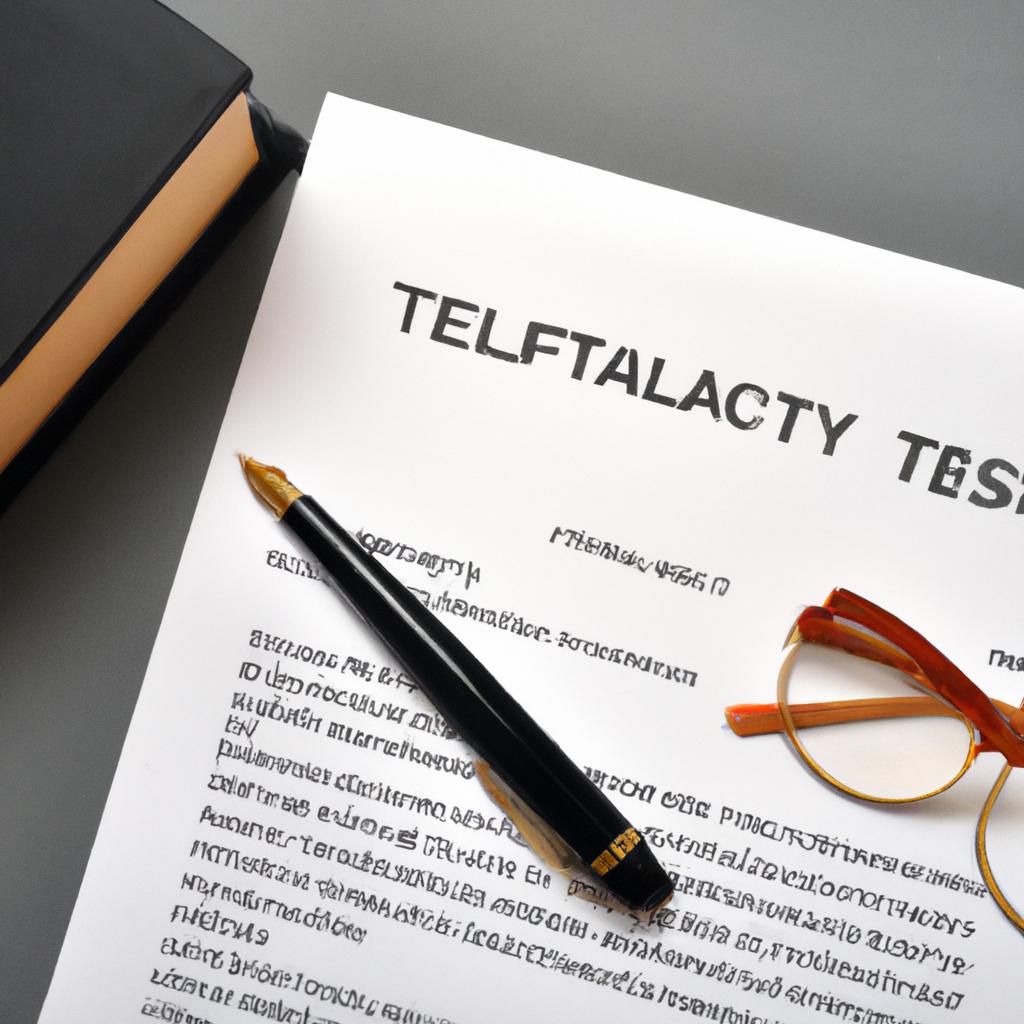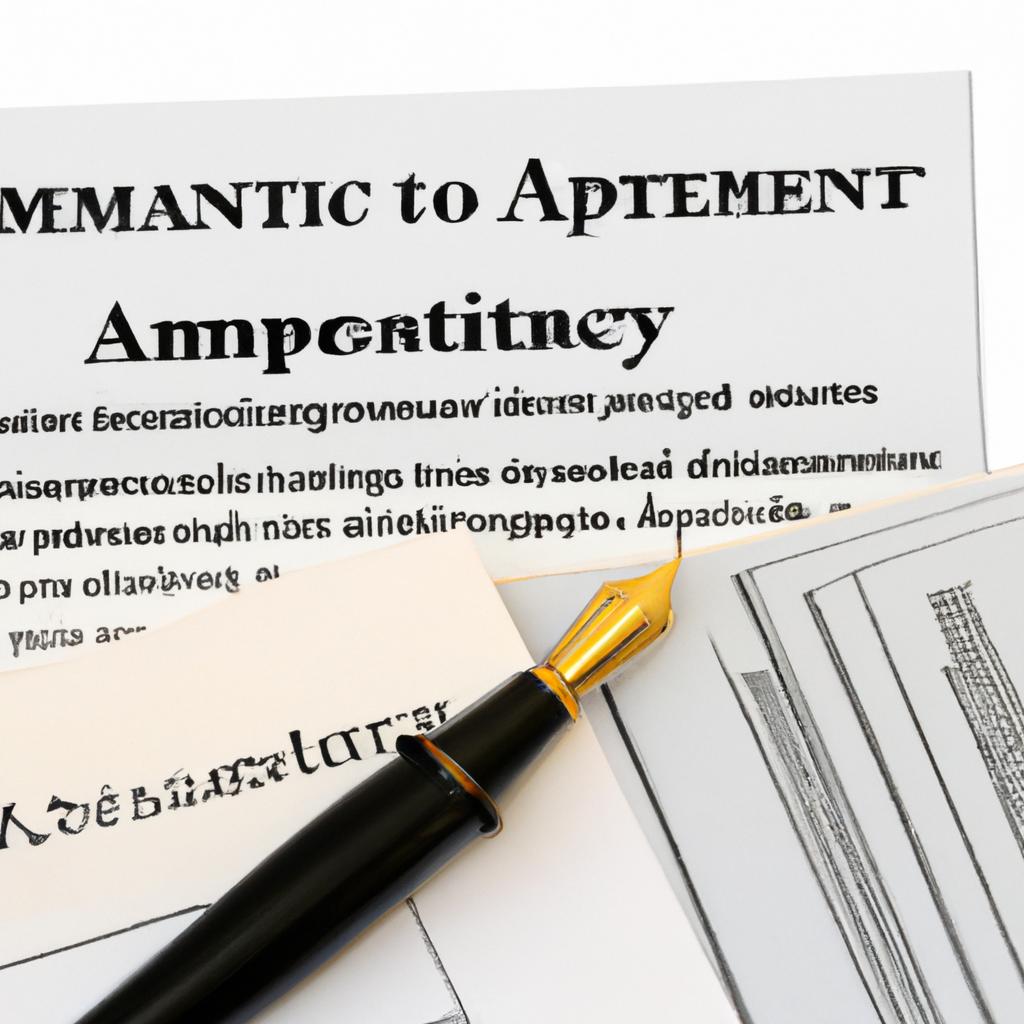In the intricate labyrinth of estate administration, the issuance of letters of testamentary stands as a critical milestone that often eludes the understanding of many. As seasoned practitioners in the realm of estate planning and probate, Morgan Legal Group endeavors to shed light on the enigmatic concept of letters of testamentary. Situated in the heart of New York City, our firm specializes in navigating the complexities of elder law, Wills, and trusts with precision and expertise. Join us as we unravel the significance and implications of letters of testamentary in the intricate tapestry of estate administration.
Understanding Letters of Testamentary in Estate Administration
Letters of Testamentary are legal documents issued by a probate court that authorize the executor or personal representative named in a decedent’s will to act on behalf of the estate. These letters grant the executor the legal authority to manage and distribute the assets of the deceased according to the terms outlined in their will. It is essential for the executor to obtain these letters before they can begin the estate administration process.
When applying for Letters of Testamentary, the executor will need to file a petition with the probate court in the county where the deceased resided. The court will review the will, verify its validity, and appoint the executor named in the will. Once appointed, the executor will receive the Letters of Testamentary, which serve as proof of their authority to act on behalf of the estate. With these letters in hand, the executor can begin the process of gathering, inventorying, valuing, and distributing the assets of the estate in accordance with the decedent’s wishes.

Key Role of Letters of Testamentary in Probate Process
Letters of Testamentary are a crucial document in the probate process that grants an individual the authority to act on behalf of the deceased’s estate. This legal document is issued by the court and provides the executor or personal representative with the power to manage and distribute the assets of the deceased according to their Will.
Having Letters of Testamentary is essential for carrying out the wishes of the deceased, resolving debts, paying taxes, and distributing assets to beneficiaries. Without this document, the executor lacks the legal authority to make decisions on behalf of the estate. It is important to obtain Letters of Testamentary as soon as possible to ensure a smooth probate process.

Requirements and Application Process for Obtaining Letters of Testamentary
**Requirements for Obtaining Letters of Testamentary:**
In order to apply for Letters of Testamentary, there are certain requirements that must be met. These requirements typically include providing a death certificate of the deceased individual, a valid Will, a list of beneficiaries named in the Will, and any other relevant documentation. It is important to ensure that all required documents are accurate and complete before submitting the application to the probate court.
Application Process for Obtaining Letters of Testamentary:
The application process for obtaining Letters of Testamentary can vary depending on the jurisdiction. Generally, it involves filing a petition with the probate court, attending a hearing, and obtaining approval from the court to act as the executor of the estate. Once approval is granted, the Letters of Testamentary can be issued, giving the executor the legal authority to administer the estate according to the terms of the Will. It is crucial to follow the proper legal procedures and deadlines throughout the application process to ensure a smooth and efficient probate process.
| Required Documents | Additional Information |
|---|---|
| Death Certificate | Must be certified by the relevant authorities |
| Will | Must be the original copy and properly executed |
| List of Beneficiaries | Must include contact information for each beneficiary |

Best Practices for Executors When Dealing with Letters of Testamentary
Letters of Testamentary are court-issued documents that grant an executor the legal authority to manage and distribute the assets of a deceased person’s estate. As an executor, it is crucial to understand the best practices when dealing with Letters of Testamentary to ensure that the estate is administered properly and in accordance with the law.
**Here are some :**
- Read and understand the terms of the Letters of Testamentary carefully to know your rights and responsibilities as an executor.
- Keep accurate records of all transactions and communications related to the estate.
- Work closely with an experienced estate planning attorney to navigate complex legal issues.
Q&A
Q: What are letters of testamentary?
A: Letters of testamentary are legal documents issued by a probate court that give an executor the authority to act on behalf of a deceased person’s estate.
Q: Who can obtain letters of testamentary?
A: A person named as the executor in a deceased person’s will can obtain letters of testamentary by filing a petition with the probate court.
Q: What powers do letters of testamentary grant to the executor?
A: Letters of testamentary grant the executor the power to manage and distribute the deceased person’s assets, pay debts and taxes, and take other actions necessary to settle the estate.
Q: How long are letters of testamentary valid?
A: Letters of testamentary are typically valid for a specified period, which may vary depending on the jurisdiction. Executors are generally required to complete their duties within a reasonable timeframe.
Q: What happens if a person dies without a will?
A: If a person dies without a will, the court will appoint an administrator to act as the executor of the estate. The administrator will then be granted letters of administration, which serve a similar purpose to letters of testamentary.
In Conclusion
In conclusion, understanding what letters of testamentary are is crucial for navigating the complexities of estate administration. By obtaining these documents, you can effectively carry out the final wishes of a loved one and ensure that their assets are distributed according to their wishes. Remember, seeking legal advice and guidance when dealing with letters of testamentary can help streamline the process and avoid potential complications. Here’s to honoring the legacies of our loved ones with care and diligence.






